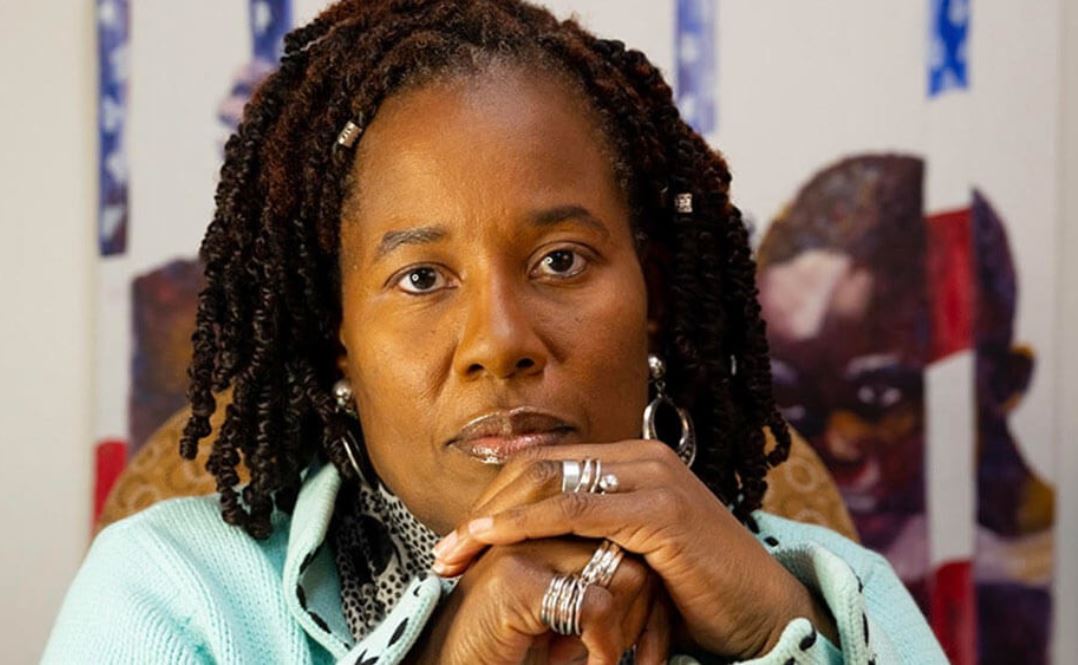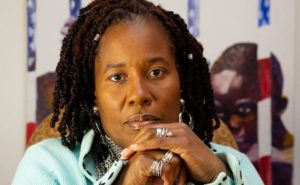
 Every conversation in America is a conversation about race, according to Kaye Wise Whitehead, Ph.D., a professor of African and African American studies at Loyola University Maryland in Baltimore, and a speaker at Convening Leaders 2021 in January. “That’s because a conversation about race in America is a conversation about people,” she said. Race is not a biological concept, but rather a social construct, “that either extends or denies a person’s access to privileges and benefits. It determines whether or not you are allowed in the room where it happens.”
Every conversation in America is a conversation about race, according to Kaye Wise Whitehead, Ph.D., a professor of African and African American studies at Loyola University Maryland in Baltimore, and a speaker at Convening Leaders 2021 in January. “That’s because a conversation about race in America is a conversation about people,” she said. Race is not a biological concept, but rather a social construct, “that either extends or denies a person’s access to privileges and benefits. It determines whether or not you are allowed in the room where it happens.”
At Convening Leaders, Whitehead, a three-time Emmy-nominated documentary filmmaker, presented an 18-minute TED-style talk outlining the history of racism and white supremacy in America and a blueprint for creating change. In the second half of her session, “Race, Equity and Actionable Steps to Increase Access and Opportunities for All,” Whitehead moderated a conversation with Kirsten Olean, CAE, IOM, director of meetings, Cystic Fibrosis Foundation, and the 2021 chair of the PCMA Board of Directors, and Al Hutchinson, president and CEO of Visit Baltimore, about how the meetings industry could contribute to racial equity. Visit Baltimore sponsored the session.
Two Nations, One Black and Enslaved, One White and Free
Any analysis of race must begin, Whitehead said, with understanding how race was socially and politically constructed in the United States before the end of the Civil War, a history that coincided with America’s colonial period and the trade system in which “approximately 40 million Africans were forcibly taken from their homes, and scattered throughout the Americas,” she said. European colonists created three races, Whitehead said: indigenous “savages,” “subhuman” Africans, and whites. Within those categories, they united white colonists, dispossessed indigenous people, and enslaved African men, women, and children for close to 250 years. “It was within this ‘plantation generation’ that we became two nations: one, Black and enslaved, and one white and free,” she said. “Race as we understand it and as we live it, is essentially about whose life matters and whose life doesn’t.”
The effects of the oppression and servitude of black people can be seen today in every facet of our lives, Whitehead said, from the mass incarceration of Black men, to voter suppression and racial profiling, and metrics like the higher numbers of public-school expulsions for Black students and the higher mortality rate for Black pregnant women. Black people account for 25 percent of those who have tested positive for — and 39 percent who have died from — COVID-19, even though Black people make up only 13 to 14 percent of the population, she said. In 2016, the net worth of a typical white family in the U.S. was $171,000, compared to $17,150 for a typical Black family — “the ratio of white family wealth to Black family wealth is higher today than at the start of the century,” she said.
“Whiteness and white supremacy, racism and injustice, are threads woven into the fabric of America,” Whitehead said. “And unless we are willing to pull on the threads, and unravel it all, then conversations about race won’t get us to dismantling the pillars of racism. How do we solve it?” she asked. “How do we stop this ride and get off?”
‘You Must Be Honest With Yourself’
First, “you must learn what racism is and how it has evolved,” she said. “You must be honest with yourself and painfully aware of your own racism, your stereotypes, your feelings of anti-Blackness. You need to figure out where you sit with the question of race. Who are you, where did you get your ideas about race? You are unable to practice antiracism until you are honest about where you sit with this…”
Republished with permission of Convene, the magazine of the Professional Convention Management Association (PCMA), © 2021, pcma.org.
